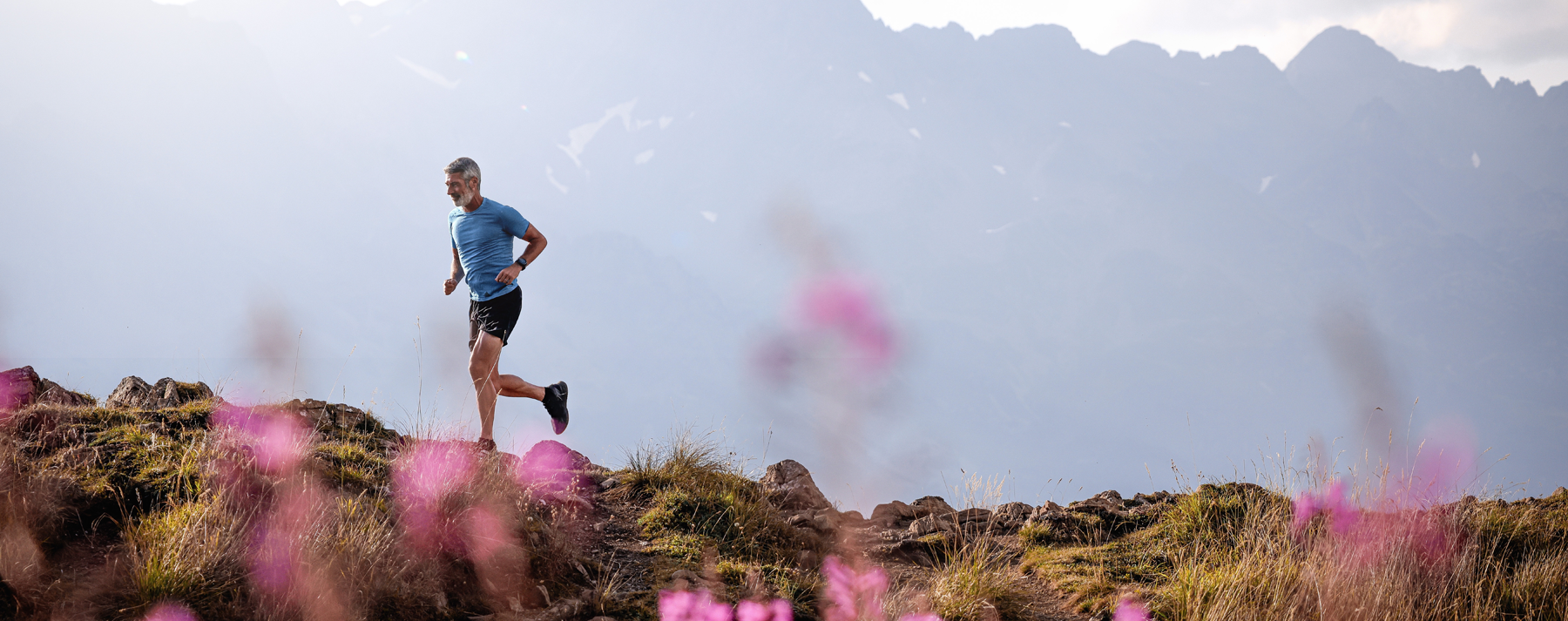
Our commitments
Sources ALMA ensures the delivery of pollutant free water which is naturally sourced and meets the quality standards of natural mineral or spring water from collection to bottling.
The water we source is naturally protected and originates exclusively from underneath the ground without risk of pollution.
Health
Our waters, whether mineral or spring, meet the strictest standards and ensure an optimal level of quality.

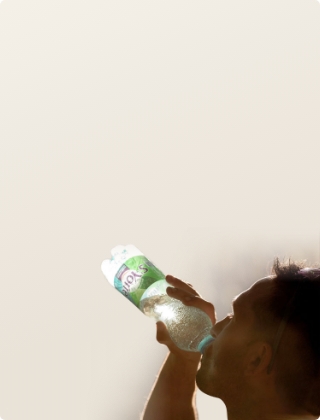
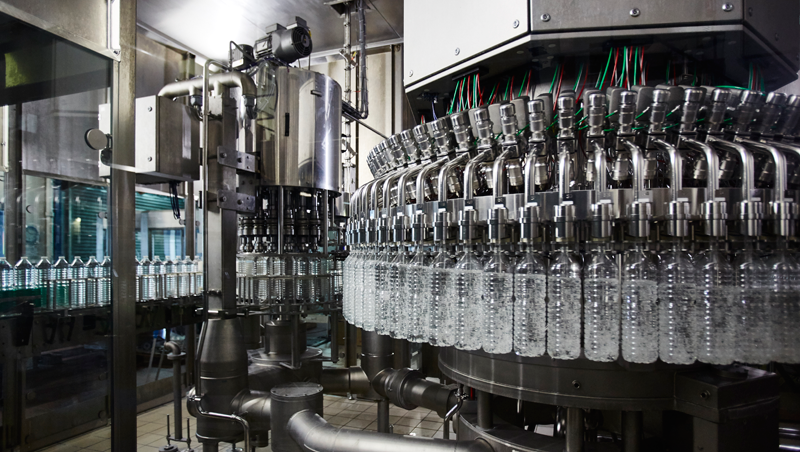
About Our Bottled Water
Our spring and natural mineral water originates exclusively from underground sources. The water is microbiologically safe and is protected from risks of pollution(1).
The water is collected in its natural state and doesn’t undergo any disinfection treatment. Each of our natural mineral or spring water brands have a guaranteed origin and composition.
Sources ALMA is well known for its spring water brand, Cristaline, which is the most favoured water in France(2). Our portfolio also includes some of the most mineral-rich natural mineral waters on the market. This is how our company has become the leading expert in mineral water.
(1) In accordance with current regulations (articles R1321-84 et R1322-2 du Code de la santé publique)
(2) Source: KANTAR 2023
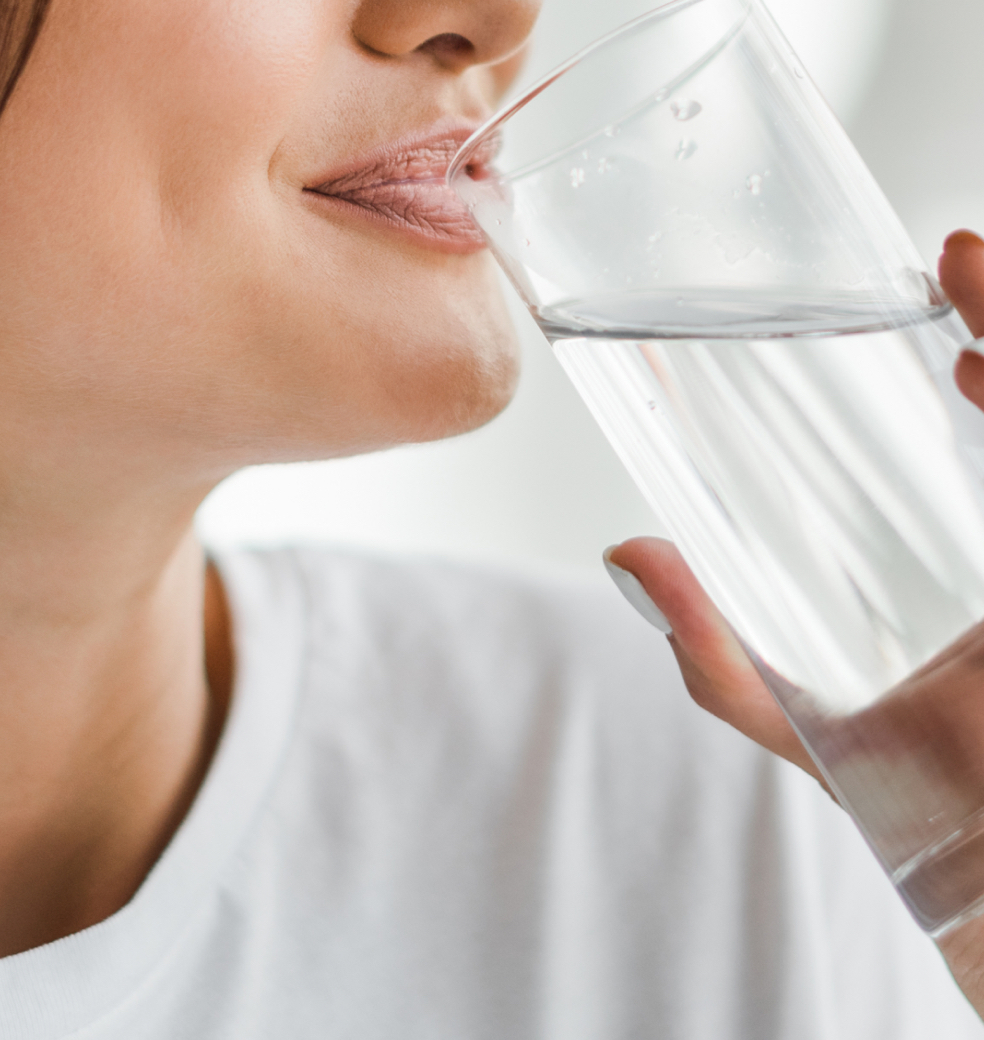
Tap Water
Tap water is sourced from surface water sources such as rivers, lakes, canals, ponds and/or shallow groundwater. Tap water typically undergoes numerous physical and/or chemical treatments(3) to become potable. The origin of tap water can vary depending on the region and cannot claim specific mineral compositions nor the label “suitable for the preparation of newborns food.“
(3) Article R1321-50 du Code de la santé publique
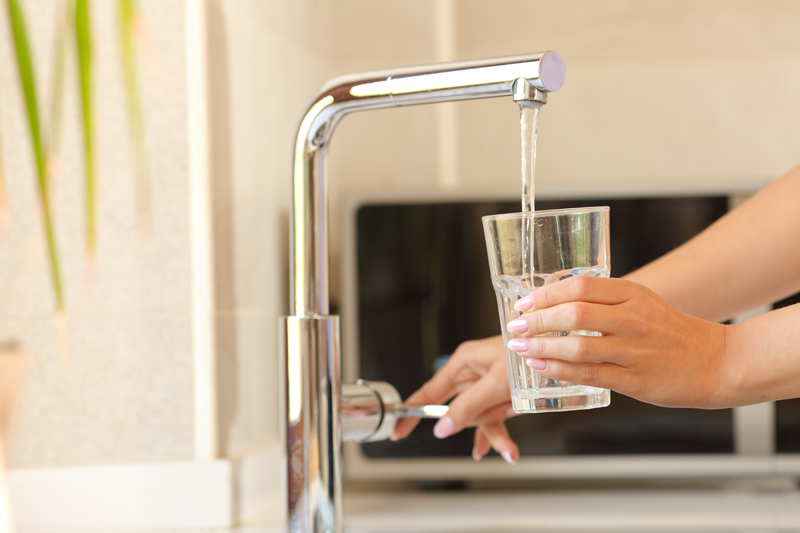
Filtered Tap Water
Filtered tap water is tap water (i.e., water made potable through treatments) that undergoes additional filtration at the point of consumption.
Since tap water in France is already made potable, microfiltration is neither necessary nor a guarantee of quality. The characteristics of filtered water remain those of treated potable water, and its composition is unknown at the time of consumption.
Filtration only partially removes certain undesirable elements, such as chlorine, lead, and aluminum, depending on the condition and characteristics of the filter cartridge. On the other hand, filtered water can also remove essential minerals and trace elements vital to health (calcium, magnesium, sodium, potassium, etc.).
Therefore, it is a system dependent on the quality of the water supply and does not compensate for any original deficiencies in water quality. Filtered water does not guarantee risk-free water and remains vulnerable to pollution risks and disruptions in the water network.
Quality
Water is the primary focus of Sources ALMA's business, which involves not only bottling but also implementing actions to preserve and protect water resources. This is done to ensure both the long-term sustainability of the resource and to guarantee its purity and quality.
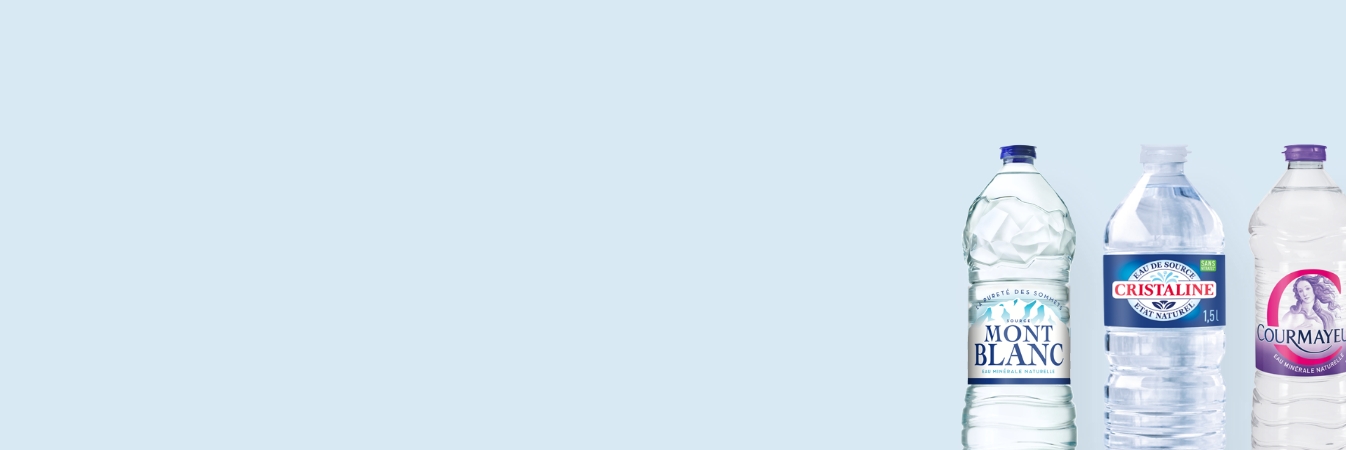
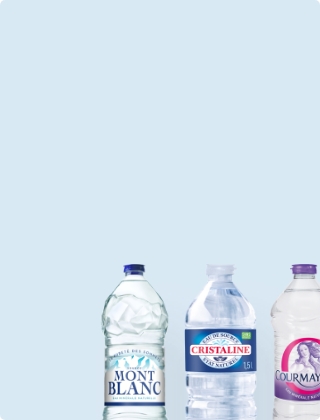
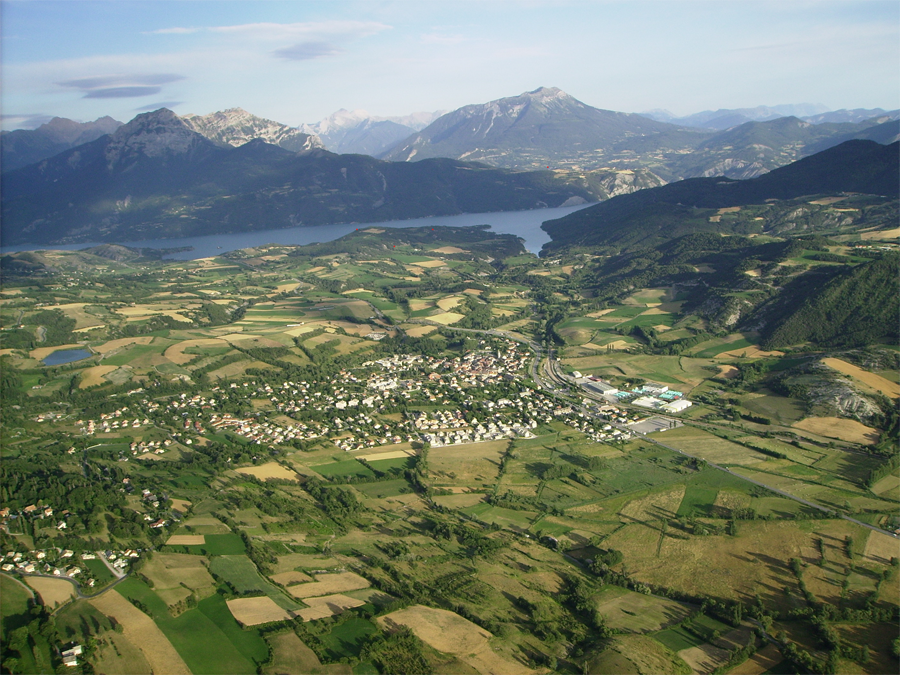
The Protection of Our Sources
Most of our sources are located near fragile wetland environments, sometimes in protected areas (Natura 2000, ZNIEFF). Even if our operations are not directly subject to specific physical protection perimeters (immediate, intermediate, or distant), Sources ALMA is committed to safeguarding these areas to ensure the protection of the water sources.
For this reason, we must manage the surrounding land to avoid pollution risks, as our waters must meet quality standards from collection to bottling. We establish agreements with local farmers to adopt environmentally responsible practices, such as chemical-free and pesticide-free farming, and to reduce nitrogen levels in the soil, among other initiatives.
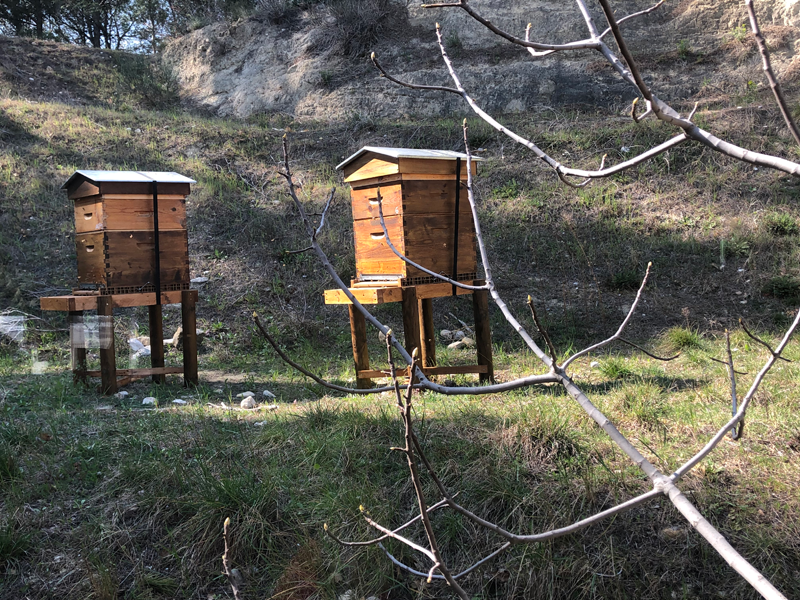
Did you know ?
As part of our efforts to protect biodiversity, beehives have been installed on the catchment areas of certain bottling sites to help preserve bee colonies, which play a vital ecological role as pollinators.
Moreover, pollen analysis serves as an indicator of environmental quality and, in turn, helps ensure the long-term preservation of our water resources.
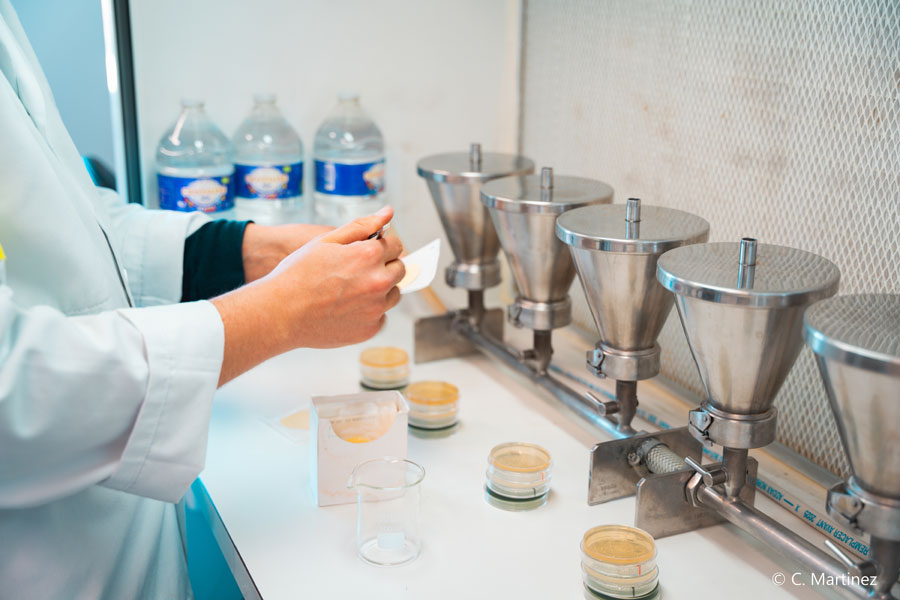
Constant Quality Controls
At Sources ALMA, continuous attention to quality is a top priority. Daily checks and tests are carried out at every stage of the production process :
- Physico-chemical control : analyses the composition of the water.
- Bacteriological control: ensures the absence of microorganisms or contaminants.
- Organoleptic test: checks the consistency of the taste, appearance, and odor of the water.
- Raw material control : verifies all elements involved in the bottle’s composition, including materials in contact with the water, such as the cap.
- Product presentation control : monitors everything from filling to the overall presentation of the product.
Environment
For many years, Sources ALMA has been committed to various initiatives aimed at minimizing its environmental impact.


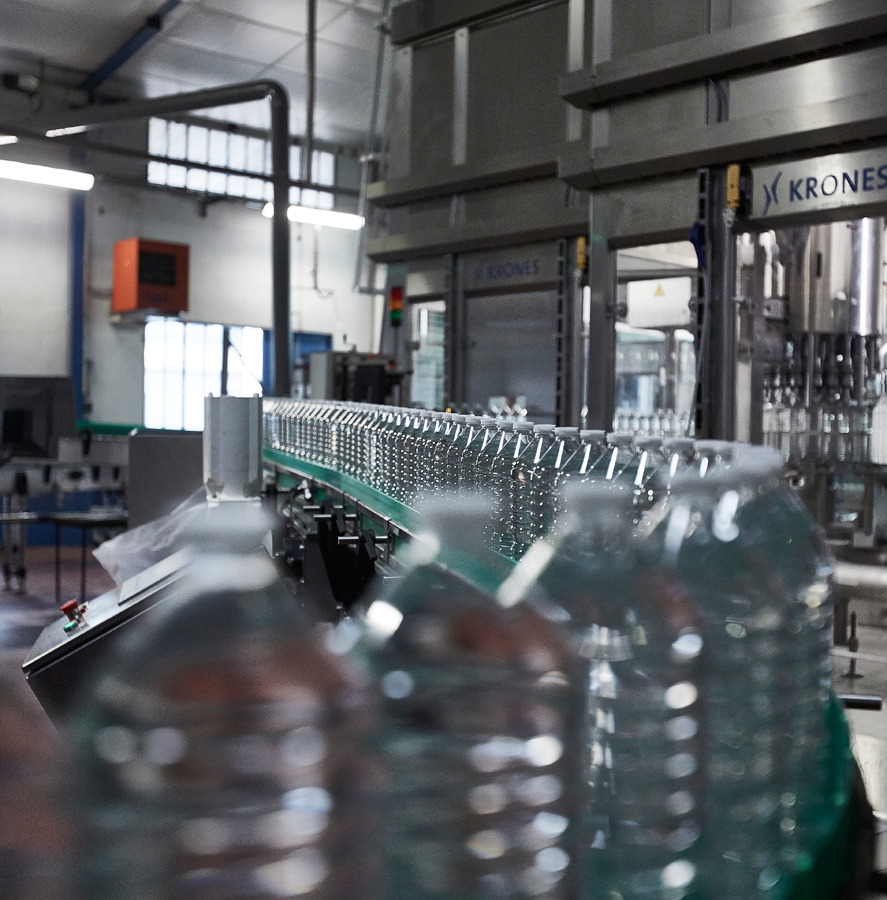
Less Plastic through Eco-Design
For over 30 years, Sources ALMA has been reducing the weight of its bottles, making them the lightest on the market, in order to minimise the amount of plastic needed for bottling its spring and natural mineral waters.
Our bottles are produced on-site in our bottling plants, thereby eliminating the upstream transport of empty bottles. They are made from recycled PET, a fully recyclable resin that can be reused for the same purpose, contributing to a virtuous cycle of material reuse.
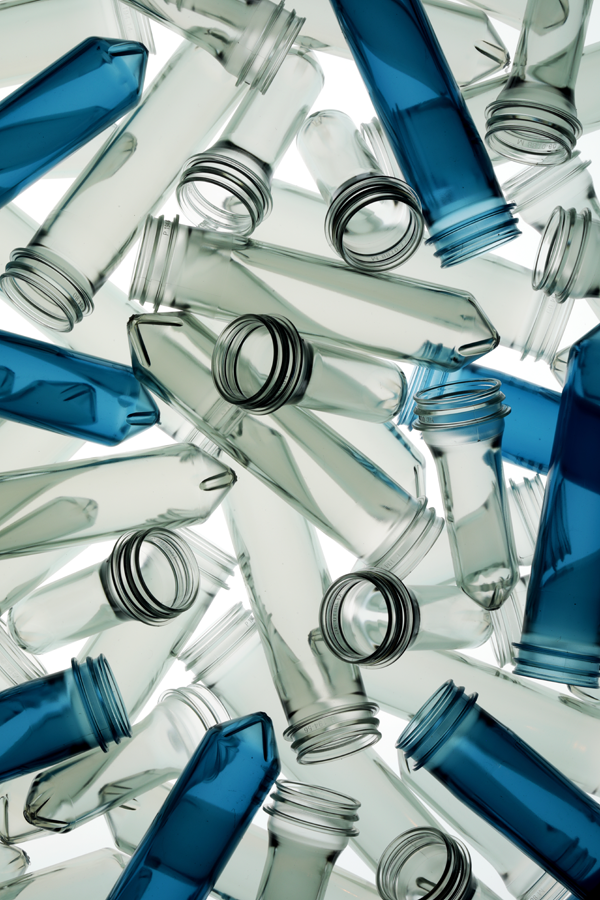
Towards a Circular Economy with PET
PET effectively offers multiple lives for the water bottle. Once sorted by the consumer, the collected empty PET bottle is recycled and can be used to manufacture a new one, supporting a 100% circular economy.
PET is an inert material suitable for food contact quality. It meets European and French regulatory requirements, ensuring its safety. The PET bottle preserves the water and maintains its physico-chemical, microbiological, and organoleptic qualities.
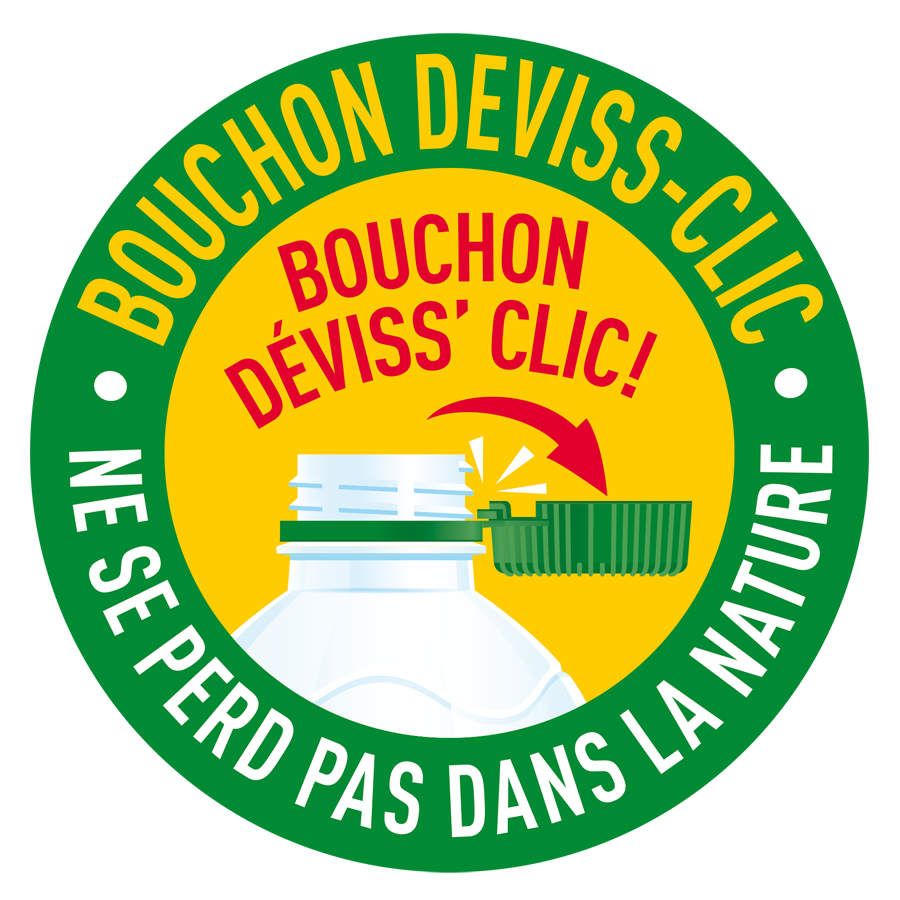
Did You Know?
The attached cap, designed to stay with its bottle, is a Cristaline innovation launched in 2016. It facilitates sorting and helps combat abandoned waste. This innovation has inspired the European Union, which has made the attached caps mandatory since July 2024.
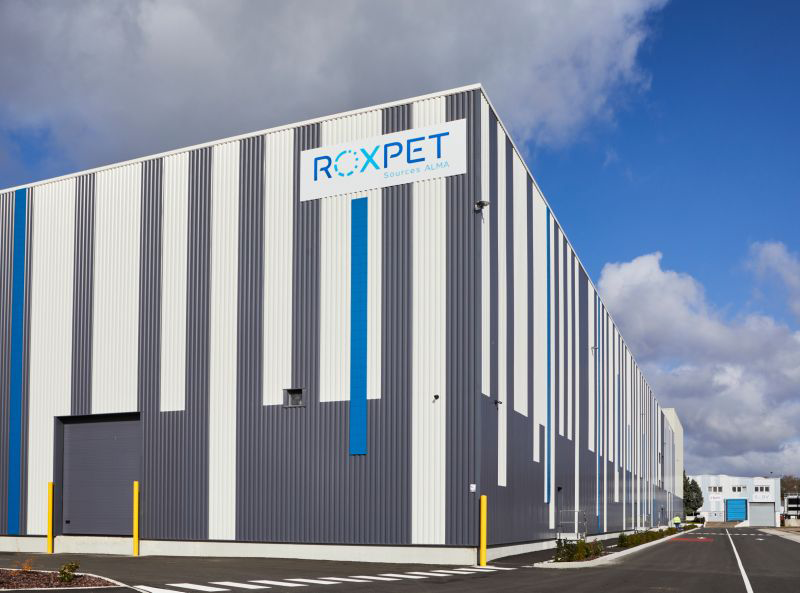
The Champion of Recyclable Water Bottles!
Since 2009, Sources ALMA has been the first water bottler in France to produce its own recycled plastic (rPET), and now operates three recycling plants across the country. These facilities significantly increase the proportion of recycled PET used in bottles — with some bottles made from up to 100% recycled material.
CRISTALINE is fully committed to bottle circularity and, as of 2024, is capable of recycling 100% of the bottles it places on the market (in equivalent tonnage), thanks to the launch of its third PET recycling plant in 2023.
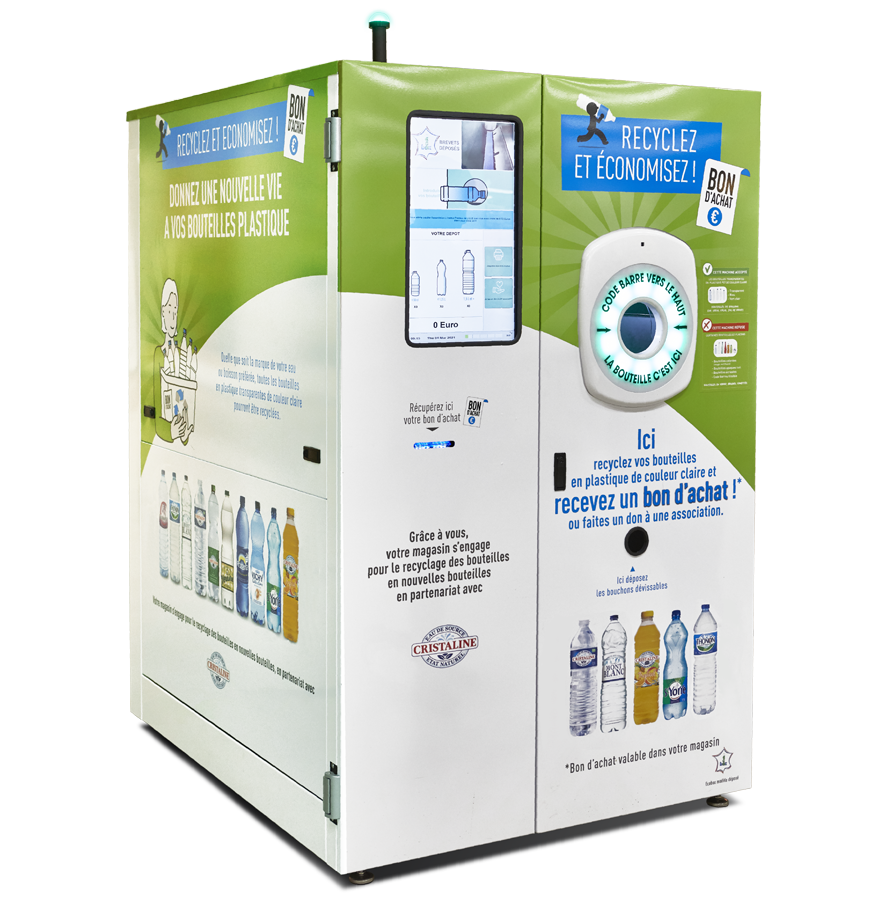
A Lasting Commitment to Recycling
Sources ALMA has been committed for many years to improving packaging recycling rates through Extended Producer Responsibility (EPR) systems, which fund the selective collection of packaging waste.
In addition to this traditional channel, since 2014 Sources ALMA has supported the recycling of clear PET bottles by installing reverse vending machines in supermarket and hypermarket parking lots, raising public awareness around sorting and recycling. The collected bottles are then recycled and used to produce new ones.
Did you know? Cristaline 1.5L bottles contain at least 25% recycled material — and so do all our bottles from Thonon, Mont Blanc, Courmayeur, Pierval, Saint Amand, Vernière…
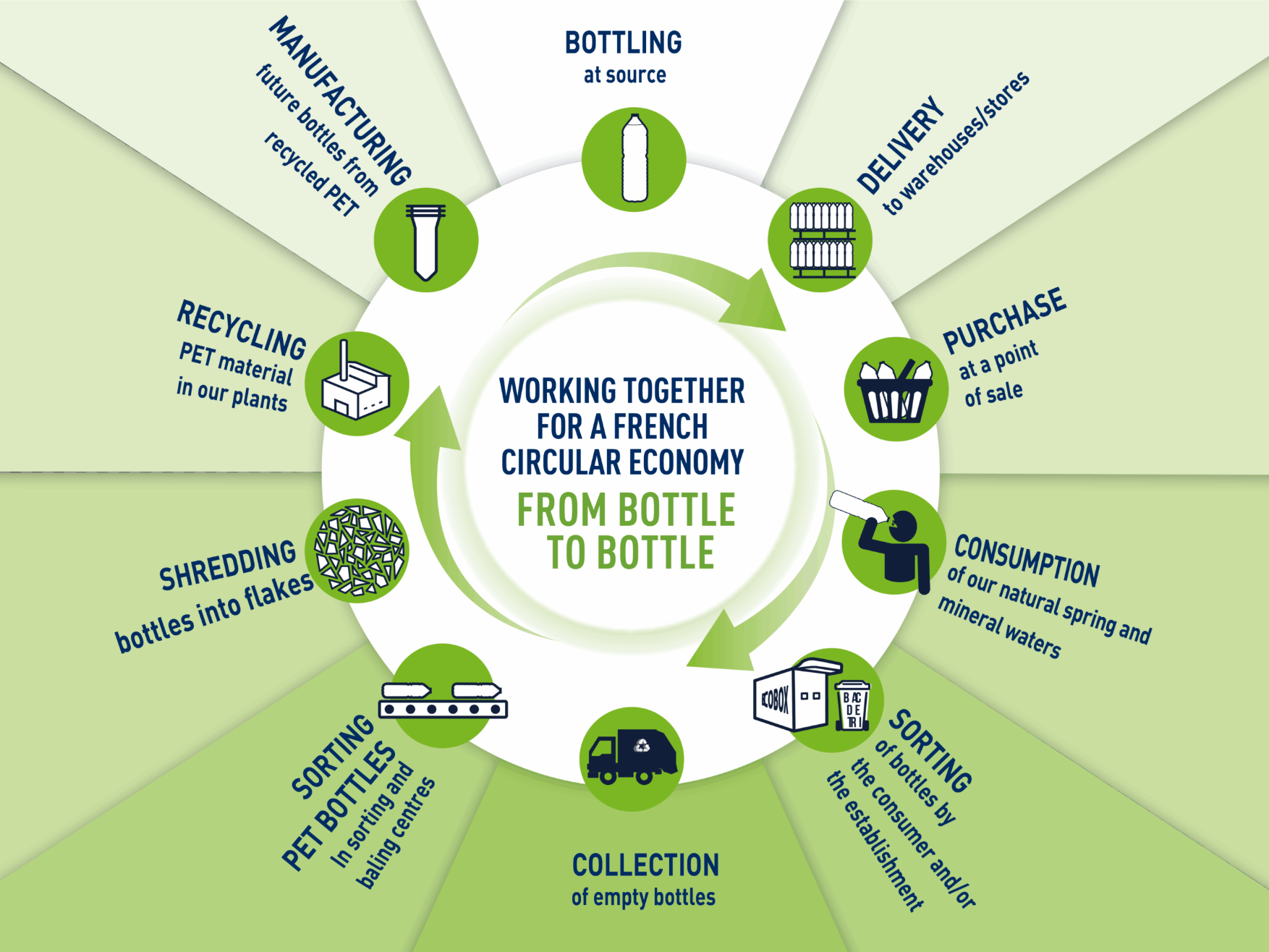
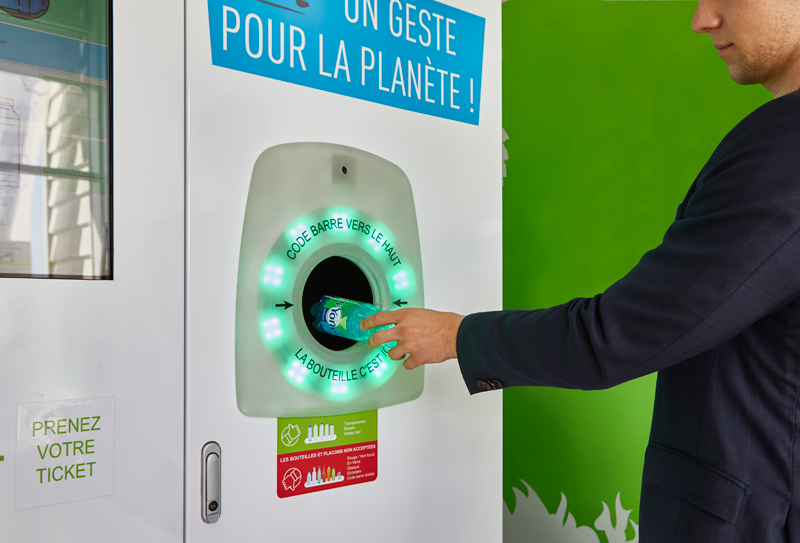
Did you know?
Today, more than 270 collection machines are up and running across France! You can find the full list at moneaucristaline.fr.
The bottles collected by these machines are immediately shredded into flakes and sent to the nearest recycling plant. There, they are turned into high-quality, food-grade recycled PET, which is then used in-house to produce new bottles.
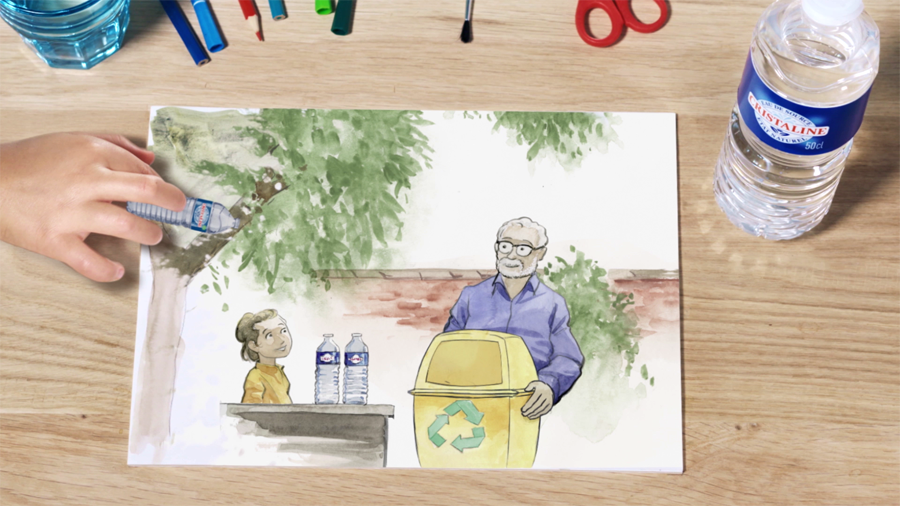
Encouraging Sorting to Improve Recycling
Beyond its initiatives to promote recycling and reduce plastic use, Sources ALMA has been committed for several years to improving packaging recycling rates, working alongside:
- CITEO, an Extended Producer Responsibility (EPR) organization that funds the selective collection of packaging. Eco-contributions are redistributed to local authorities or other operators responsible for waste collection and sorting.
- Gestes Propres, an association that runs awareness campaigns to combat littering and waste-related misconduct, while also implementing on-the-ground action programs.

Did you know?
This logo (Triman) is mandatory on recyclable packaging. It simplifies consumer information about sorting. It indicates that the packaging must be placed in the recycling bin or taken to a collection point for recycling.
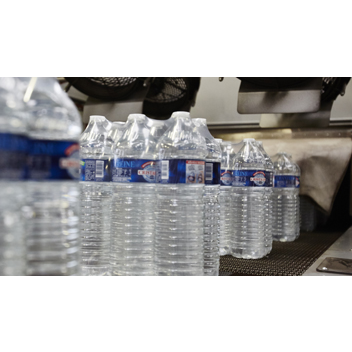
Recycling also applies to pack film
With the nationwide expansion of sorting guidelines in France, all water pack films should now be placed in the recycling bin — so they can be properly recycled.
This simplification of sorting is supported by the modernisation of sorting centers. The goal is to ensure they can handle new types of packaging sorted by consumers, capture more plastics, separate them more effectively by resin type, and better prepare packaging materials — especially newly collected plastics — for recycling.
Did you know?
The majority of our films are made with at least 50% recycled material.
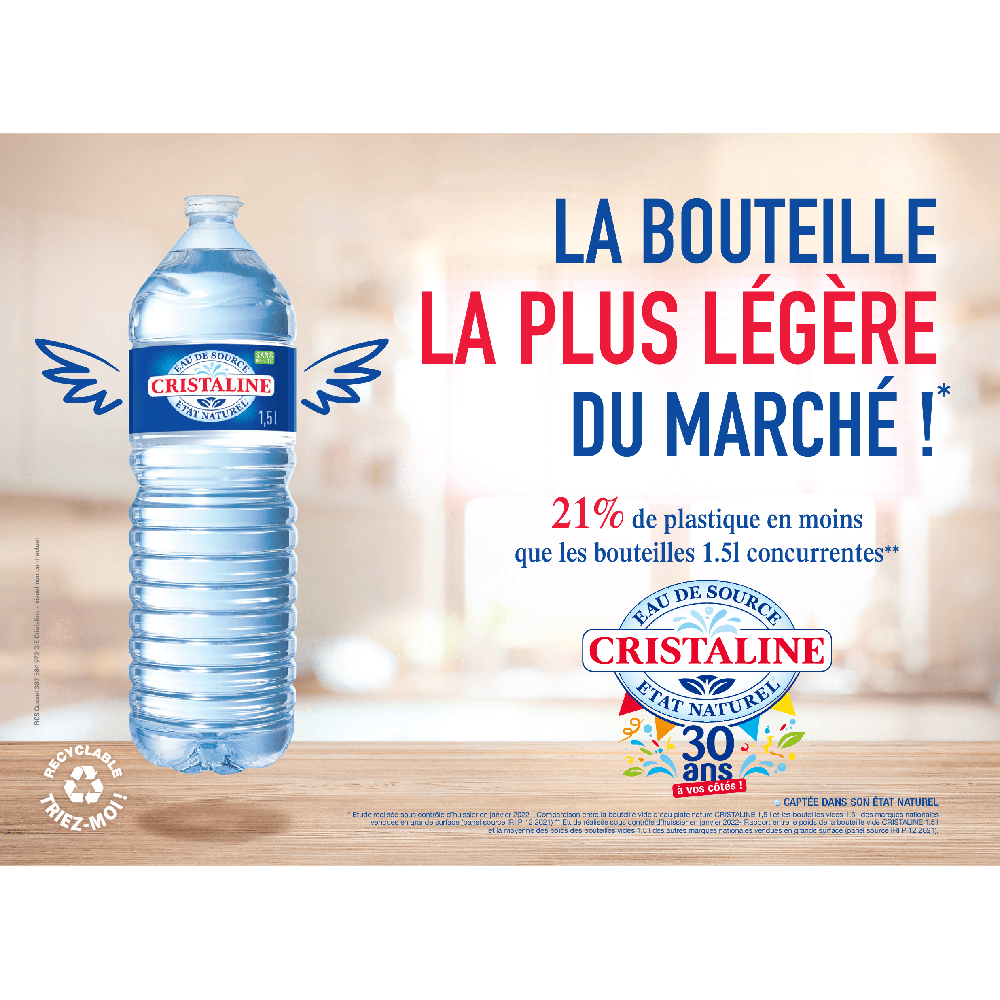
Reducing Packaging Weight
As part of its eco-design approach, Sources ALMA is constantly improving its products by reducing weight and limiting the use of virgin materials. The weight of PET bottles has been cut in half over the past 30 years!
Environmental impact reduction starts at the bottle manufacturing stage, helping lower energy consumption. The industrial process has been optimised through R&D investments and technical expertise.
For example, pack film thickness has been reduced from 80µ (microns) in 1995 to 45µ today. And by replacing shrink-wrapping machines with stretch-wrappers for pallet wrapping, plastic use is reduced and gas consumption eliminated.
Did you know?
Cristaline bottles are among the lightest on the market: less than 20g for the 1.5L bottle and under 10g for the 50cl bottle.
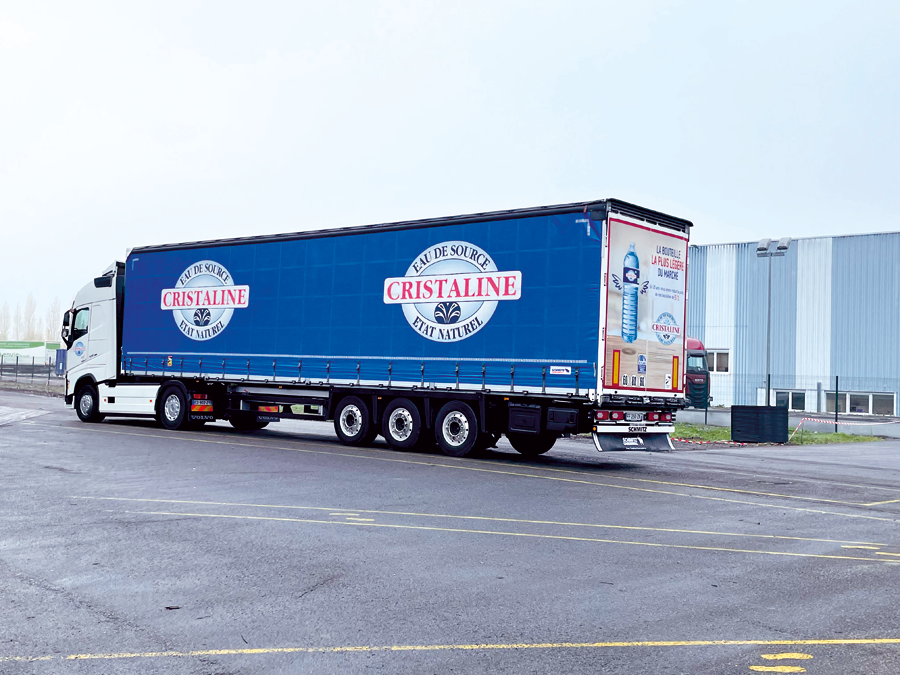
Minimising the Environmental Impact of Transport
We prioritize rail transport and intermodal transport whenever it is possible. Sources ALMA has a unique territorial and logistical network, with bottling sites spread across France. The sources sustain rural jobs and promote local economic development: for instance, CRISTALINE spring water travels an average of 200 km between its bottling and distribution locations, ensuring local consumption for as many people as possible. We have increased the amount of goods loaded onto trucks by maximising the number of bottles per pallet, which helps minimise CO2 emissions.
Less polluting transport options are favored, including:
- Euro 6 standard** for trucks that consume less fuel;
- Gas trucks** for large urban areas;
- B100 biofuel trucks** for a 60% reduction in CO2 emissions.
Sustainability
Having long been committed to reducing its environmental footprint, Sources ALMA is a key player in sustainable development.
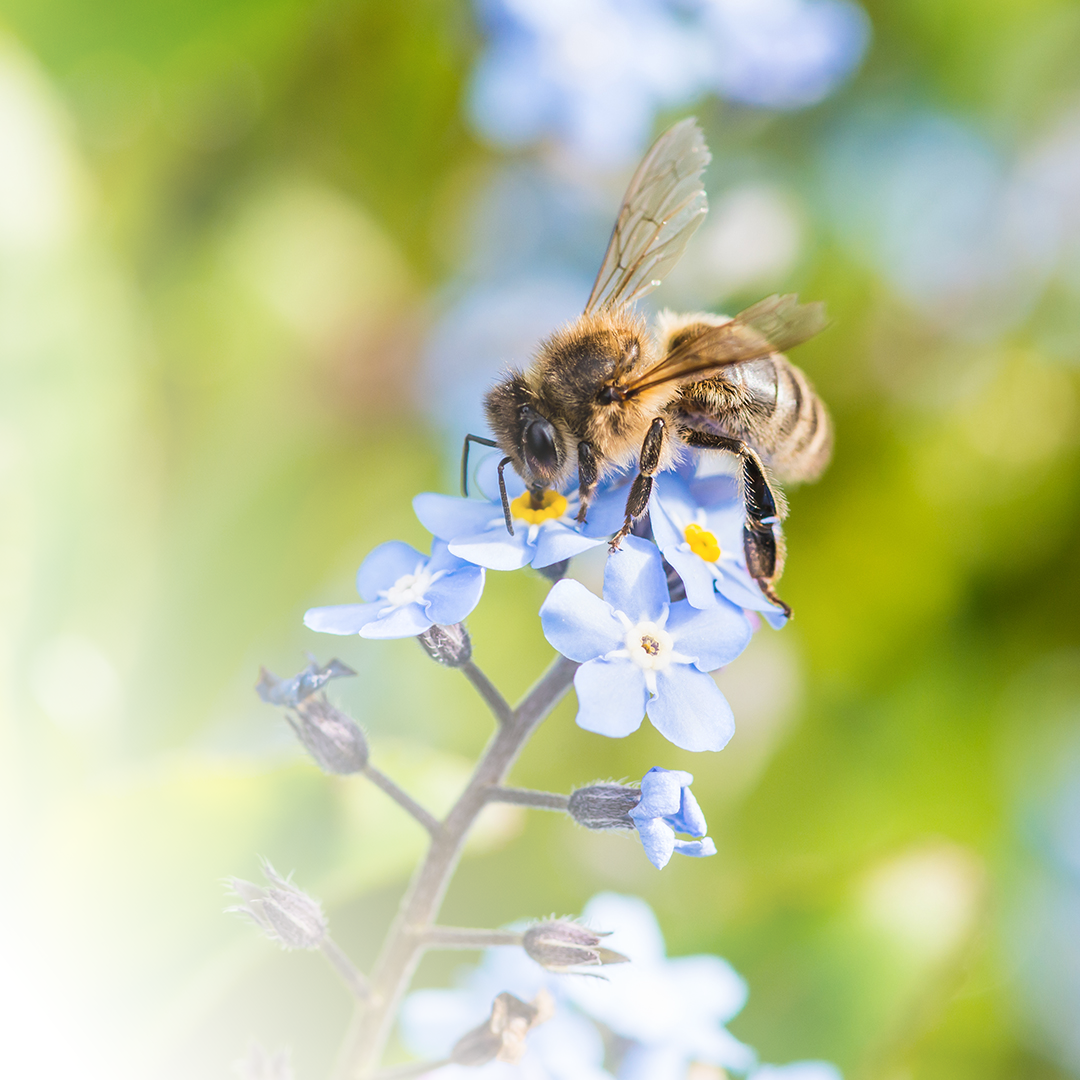

Extra-Financial Performance Declaration:
A recognized CSR performance
Sources ALMA has been awarded the Bronze Medal in its latest assessment.
What is EcoVadis?
It is a CSR evaluation based on four key themes: environment, social and human rights, ethics, and sustainable procurement.
